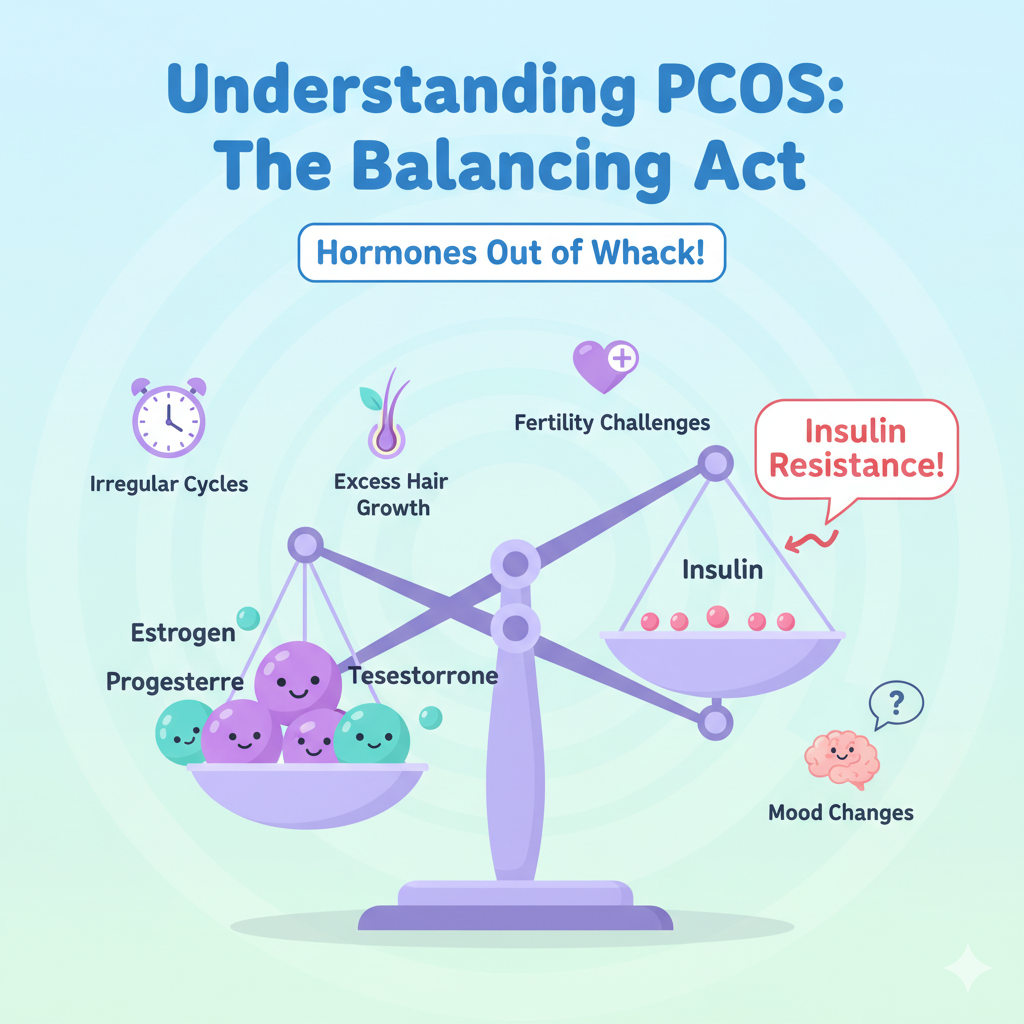The Emotional Journey of Pregnancy: Understanding and Navigating Your Changing Moods
Feeling like you’re on a pregnancy emotional rollercoaster? Discover the science behind your changing moods, trimester-by-trimester insights, and empowering self-care strategies.

The journey of pregnancy is often pictured as a time of glowing skin and joyful anticipation. But for many women, the reality includes another, less-talked-about dimension: a whirlwind of emotions that can feel as unpredictable as a spring storm. One moment you’re filled with awe, the next you’re crying over a spilled glass of milk, and later, you might feel a wave of anxiety about the future.
If this sounds familiar, please hear this: Your feelings are valid, you are not alone, and there is nothing wrong with you. At Blossom Women’s Clinic, we understand that pregnancy is a transformation of mind, body, and spirit. Caring for your emotional well-being is just as important as monitoring your physical health.
The Perfect Storm: Why Your Moods Are Changing
Your emotional landscape during pregnancy is shaped by a powerful interplay of factors. Understanding the “why” can be the first step toward granting yourself grace.
The Hormonal Symphony (And Sometimes, Cacophony)
Pregnancy hormones are the primary conductors of your emotional state. They aren’t just fluctuating; they are surging to levels you’ve never experienced before.
- Estrogen & Progesterone: These hormones rise dramatically to support your pregnancy. While essential, they can directly affect neurotransmitters in your brain, like serotonin and dopamine, which regulate mood, sleep, and motivation. This can lead to heightened emotional sensitivity, similar to premenstrual syndrome but on a much larger scale.
- Cortisol: Often called the “stress hormone,” cortisol levels also increase during pregnancy. While it helps with fetal development, elevated levels can contribute to feelings of anxiety and tension.
- Oxytocin: The “love hormone” builds throughout pregnancy, priming you for bonding with your baby. It can create feelings of warmth and connection, but its interplay with other hormones is complex.
The Physical Demands on Your Body
Your body is working overtime to create new life, and this immense physical effort has direct emotional consequences.
- First-Trimester Fatigue & Nausea: The sheer exhaustion and “morning” (often all-day) sickness can drain your emotional reserves, making it harder to cope with everyday stresses.
- Sleep Disruptions: From frequent bathroom trips to finding a comfortable sleeping position, poor sleep is a major trigger for irritability and low mood.
- Body Changes: As your body changes shape, it’s natural to have a complex mix of feelings—from wonder and pride to insecurity and a sense of losing control over your own body.
The Profound Psychological Shift
You are preparing for one of the biggest life changes imaginable. It’s natural for your mind to be busy processing this.
- Identity & Role Changes: You’re transitioning into motherhood, which can lead you to re-evaluate your own identity, career, and personal goals.
- Anxiety about the Unknown: Worries about your baby’s health, the pain of childbirth, and your ability to be a “good” mom are incredibly common.
- Relationship Dynamics: Your relationship with your partner is evolving. You may worry about the new demands on your partnership and intimacy.
- Financial & Logistical Pressures: The practical realities of preparing for a child can be a significant source of stress.
Navigating the Emotional Map of Pregnancy: A Trimester Guide
While every woman’s journey is unique, many share common emotional landmarks.
First Trimester
The Secret Keeper’s Rollercoaster
This stage is often an internal whirlwind. You may be dealing with early symptoms while keeping your news private, which can feel isolating. The combination of excitement, shock, fatigue, and nausea makes this a prime time for intense mood swings. Be gentle with yourself; you are doing the hard, invisible work of building your baby’s foundation.
Second Trimester
The “Honeymoon” and Finding Connection
For many, this trimester brings relief. Nausea often fades, energy returns, and you feel those first magical flutters and kicks. This can be a period of renewed calm and bonding with your baby. However, it’s also when prenatal testing can cause anxiety, and body image concerns may arise as your bump becomes more visible.
Third Trimester
The Final Countdown
As your due date approaches, feelings intensify. You may feel a mix of impatient excitement and physical discomfort. “Nesting” instincts can kick in, alongside very real worries about labor and delivery. It’s common to feel overwhelmed by the impending responsibility of motherhood. This is a time for patience, preparation, and rest.
Your Emotional Well-Being Toolkit: Practical Strategies for Every Trimester
Caring for your mental health is a proactive process. Here are ways to nurture yourself throughout your pregnancy:
Name It to Tame It
Acknowledge your feelings without judgment. Say to yourself, “I am feeling incredibly anxious right now,” or “I am feeling sad, and that’s okay.” Labeling emotions can reduce their intensity.
Build Your Support Village
Don’t isolate yourself. Talk to your partner, friends, or family. Consider joining a prenatal class or online community where you can connect with other expectant mothers who truly “get it.”
Communicate with Your Partner
Be open about what you need. It could be as simple as, “I don’t need you to fix it, I just need a hug,” or “Could you handle dinner tonight? I’m exhausted.”
Move Your Body Gently
Exercise releases endorphins, your body’s natural mood lifters. A daily walk, prenatal yoga, or swimming can work wonders for your mental state.
Nourish to Flourish
Eating small, frequent meals rich in protein and complex carbs can help stabilize your blood sugar, which has a direct impact on your mood.
Practice Mindfulness and Breathwork
Simple techniques can ground you during moments of anxiety. Try the “4-7-8” breathing technique: inhale for 4 counts, hold for 7, exhale slowly for 8.
When It’s More Than “Just Mood Swings”: Recognizing Prenatal Depression & Anxiety
It’s crucial to distinguish normal emotional fluctuations from a perinatal mood or anxiety disorder (PMAD). If you experience any of the following persistently (for two weeks or more), it is a sign of strength to seek help:
- Persistent sadness, hopelessness, or crying spells.
- Severe anxiety, panic attacks, or constant worrying.
- Inability to feel joy or interest in activities you once loved.
- Difficulty bonding with your growing baby.
- Changes in appetite or sleep that are unrelated to pregnancy symptoms.
- Thoughts of harming yourself or your baby.
Asking for help is an act of love for both you and your baby. At Blossom Women’s Clinic, we provide a safe, non-judgmental space to discuss your mental health. We can connect you with resources, support groups, and professionals who specialize in maternal mental health.
Embracing the Journey, One Emotion at a Time
Your emotional journey through pregnancy is as unique and beautiful as the life growing within you. It’s a path of immense growth, resilience, and profound love. Embrace the highs, be compassionate with yourself during the lows, and trust in your strength.
Remember, you are not just growing a baby; you are growing into a mother. And at Blossom Women’s Clinic, we are honored to walk beside you every step of the way.
You don’t have to navigate the emotional waves of pregnancy alone
Our compassionate team at Blossom Women’s Clinic is here to listen and support your whole-person well-being.


